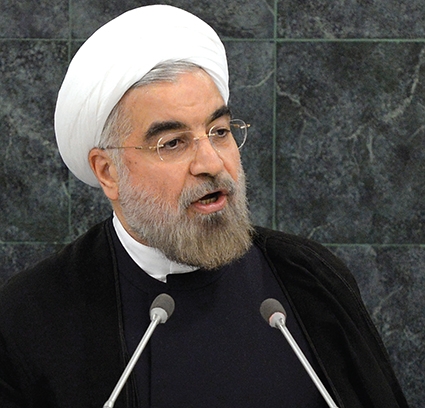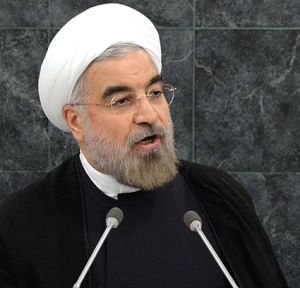Round Two of Georgia-Iran Relations: What does the Future Hold?
WASHINGTON D.C. – Voice of America’s Georgian service and its chief Anna Kalandadze sat down with Alex Vatanka, Senior Fellow at the Middle-East Institute in Washington to discuss Georgia and Iran relations, proposed plans for closer economic integration and in broader terms, analyze Iranian President Hasan Rouhani’s mission after the Nuclear Agreement was reached with the West.
How do you understand Iran’s desire to start relations with Georgia?
President Rouhani of Iran was elected back in 2013 on a simple pledge to overhaul Iranian foreign policy. He’s done plenty on that front. We’ve seen the agreement on the nuclear issue and we’ve seen a huge European and Asian interest in Iran in terms of political and economic relations. Now, the country of Georgia happens to be one of Iran’s closer neighbors. It’s a country that has historically been close to Iran and I think both sides, the Iranian side and the Georgian side, going back to 1991, have desired to maintain close relations. In recent years Georgia came under pressure from the United States to cooperate with the Washington policy of isolating Iran until a nuclear agreement was reached. That Georgia did, because the fact is Georgia obviously feels that ties with the United States are more important than with Iran. But right now there’s an agreement in place and I think it allows Georgia to move closer to the Iranians. Whether or not there will be commercial opportunities for Georgia, and whether Iran will provide any economic opportunities for Georgia, time will show.
Why should Georgia be reverting back on the no-visa policy now, after it cancelled a similar policy before?
Georgia is geographically positioned between two giants: Russia to the north and Iran to the south. At the same time, Georgia has been pursuing a mostly western-centered policy since gaining independence. It puts Georgia in an awkward position, particularly when Russia or Iran have difficulties with the West. But right now we are in a moment when the United States is not blocking Iran’s neighbors from engaging with Iran. Washington’s policy is that as long as Iran delivers on the nuclear front then it’s free to trade and invest in Iran. The risk here is that something happens and the nuclear agreement falls apart. I think that risk is very minimal for the foreseeable future, but there is always a risk. Iran is looking to build political alliances with major international actors which is why Iranians are so keen to reach out to Germany, France, Japan and China, as well as the rest of the world. Smaller countries like Georgia are also opportunities for Iranians to fix their image internationally. I think a country like Georgia was useful for Iranians for practical reasons a couple of years ago when there was a visa free regime and Iranian money, investors and businesses went to Georgia. It became a ‘Dubai of the North’ for the Iranians. But as we saw, once Washington put pressure on Georgia, Georgia had no option but to stop what it was doing with Iran. This is going to be round two and time will show if this round will last longer than round one.
What can Georgia’s relations with Tehran add to the country’s well-being?
I would say Georgia is not alone in this dilemma. When all of Iran’s 15 immediate neighbors have been forced to choose between the United States or Iran, almost all of them have chosen the United States. Georgia is not a special case here. You have to choose the big power called the United States, or a closer neighbor called Iran. But now the situation has changed. Now the Iranians are saying: we are not Iran of Ahmadinejad. Now there is a different Iran. The United States is not imposing penalties on countries like Georgia for trading with Iran. So the landscape has changed and as I said earlier, now the question is - can Georgia offer Iran commercial opportunities and can Iran offer Georgia economic opportunities? Because that’s the key. Now the question is what can Iran and Georgia achieve together - they’ve talked about trade and energy; they’ve talked about Iran buying Georgian water; they’ve talked about Georgia becoming a transit for Iranian goods to Europe. There’s a lot of talks about all sort of things they can do. The key question is: can it now go from just talking to something much more concrete.
What does Iranian President Hasan Rouhani intend to do through his new foreign policy agenda in the region, as well as internationally?
My prediction is that while Rouhani is around, he’s going to focus on the European Union. I think the neighboring states with a few exceptions like Turkey are not that economically important. What they want is know-how and finances. Georgia does not have the know-how, or the finances, that Iran needs for its critical oil and gas sector. For that you need to go to Europe.
Anna Kalandadze, VoA
See original article here.











